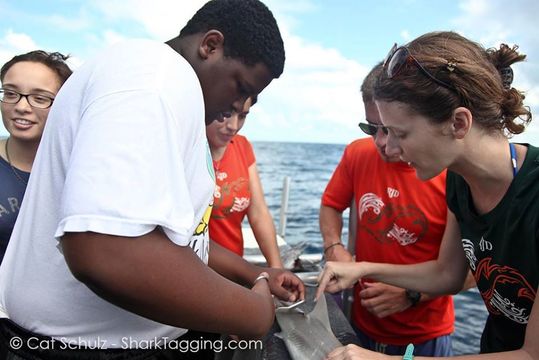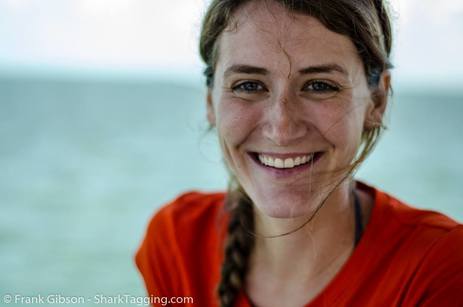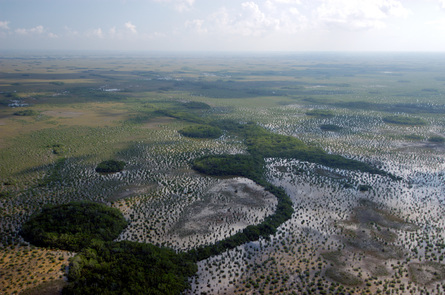|
We thought we'd follow up on our Executive Director Catherine being a featured scientist with the Gills Club by sharing her answer to one of their questions:
Q: What do you love most about being a scientist? A: One of the things I love most about science is that it is really just a set of tools for approaching all sorts of problems from a fair and balanced perspective (though scientists can be ideologically biased, well-executed science basically can’t; that core of impartiality is one thing I love about the work we do). The same scientific process can be used to ask questions about anything from outer space to what your hamster prefers to eat for breakfast. It’s all predicated on the idea that by carefully collecting and analyzing data, we can learn more truths about the things that interest us—whatever they happen to be. Although I sometimes find it frustrating, I also love that science never claims to know the final answer. Science is never finished—we’re constantly re-evaluating old findings on the basis of what we’ve just learned—and that means that we’re always curious and (hopefully) always improving our understanding of the world. I find that lack of certainty really exciting and humbling. There’s always something more to learn!
0 Comments
Field School Executive Director Catherine Macdonald is a co-featured scientist for the Gills Club in September. You can follow her Q&A about sharks, science in general and women in science particularly throughout the month on their facebook page!
The Gills Club is The Atlantic White Shark Conservancy's signature action project dedicated to connecting girls with female scientists, sharing knowledge, and empowering girls and women to take leadership positions and inspire shark and ocean conservation. Everglades National Park has released the new general management plan which will protect the park for the next 20+ years (the last revision was in 1978). These changes have been in the works for the last twelve years, and are an attempt to balance the need to protect the delicate ecological systems of the Everglades with access for visitors and protection of the livelihoods of "Gladesmen" who have utilized the park for generations.
The new rules will restrict usage in some areas. They call for phasing out the use of private airboats in the park, and will limit the number of commercial airboat operations. They will also create more areas where motorized vessels are forbidden in Florida Bay (average depth: 3 feet) in an effort to protect seagrass beds from damaging boat strikes. The new rules open up areas which were previously closed to the public (to promote crocodile recovery) to recreational catch-and-release fishing, and propose the addition of 85,300 acres to the Marjory Stoneman Douglas Wilderness. The new plan will formally go into effect after the required 30 day waiting period. Interested folks can follow the Miami Herald's coverage, read the National Park Service press release, or download and read the full plan here. |
Field Notes
Archives
July 2021
Categories |
|
Partner with us! We are always looking for new schools, scientists, and non-profit organizations to partner with. Please contact us here to start a conversation.
Hear from us! Sign up for our newsletter to hear about what is happening at Field School as well as upcoming offers and specials. |




 RSS Feed
RSS Feed